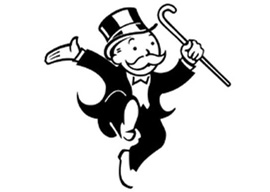
March 15, 2011

It looked for a while that the Secretary of State for Business, Liberal Democrat Vince Cable, would make sure the Monopolies Commission scrutinized the arrangement. Then, two Daily Telegraph journalists recorded him saying he had “declared war” on Murdoch. This was an own goal for the Telegraph, which is one of the papers leading the charge to block Murdoch’s acquisition of BSkyB. Yet it was fair reporting and they printed the story. Prime Minister David Cameron turned over the Murdoch brief to the Secretary of State for Culture, Olympics, Media and Sport Jeremy Hunt, known to be more Murdoch-friendly than other members of the Conservative-Liberal Democrat coalition government. Hunt permitted Murdoch to come up with a proposal to make BSkyB’s conquest more palatable: Murdoch would give up control of BSkyB’s news operation, Sky News, to an independent board. Murdoch himself would not be able to interfere with Sky News” editorial line. But he would have considerable influence with the board, whom he would pay. At a later date, he might be permitted by an equally compliant government to buy Sky News back.
There is an additional reason to look closely at granting the potential to control British media to a company that has been implicated in activities that violate laws protecting personal privacy and prohibiting media concentration (Communications Act 2003). As the months go by, revelations of phone and computer hacking on behalf of Murdoch newspapers grow. Resignations abound. One of Murdoch’s Sunday newspapers, News of the World, absorbed the conviction of one ostensibly “rogue” journalist and one private detective for hacking into Princes William and Harry’s cell phones in 2007. Yet recent disclosures have cost it several news editors over their involvement in an affair that spread to a list of 3,000 people in the private investigator’s files. Prime Minister David Cameron was forced to allow his own communications chief, former News of the World editor Andy Coulson, to resign when the mud began to stick.
A murder trial against another Murdoch contractor, private investigator Jonathan Rees, collapsed last week due to police incompetence. But courtroom evidence further implicated Murdoch papers and the police in privacy invasions. Rees, while on contract to News of the World, went to prison in December 2000 for hiding cocaine in the car of a young woman whose ex-husband wanted to take her children away. After Rees served his time, Coulson rehired him. Cameron knew this before he brought Coulson to Downing Street. And Cameron’s government is pushing through Murdoch’s purchase of BSkyB with all it entails for British press diversity. (Perhaps a less diverse press will dutifully ignore such stories.)
The News of the World insists its internal investigation has uncovered no wrongdoing by anyone on the paper other than the odd “rogue.” Guardian investigative journalist Nick Davies, who has been far in the lead on this story, published his open email to Andy Coulson demanding answers. Read it to know why Coulson’s response may be a long time coming. London’s Metropolitan Police have also been granted the luxury of an internal examination of their doings that so far has found nothing amiss. A few Labour Members of Parliament, who would probably not have raised this issue if they were in power with Murdoch’s editorial backing, have dared to demand independent judicial investigations. What can one say, except it’s about bloody time?